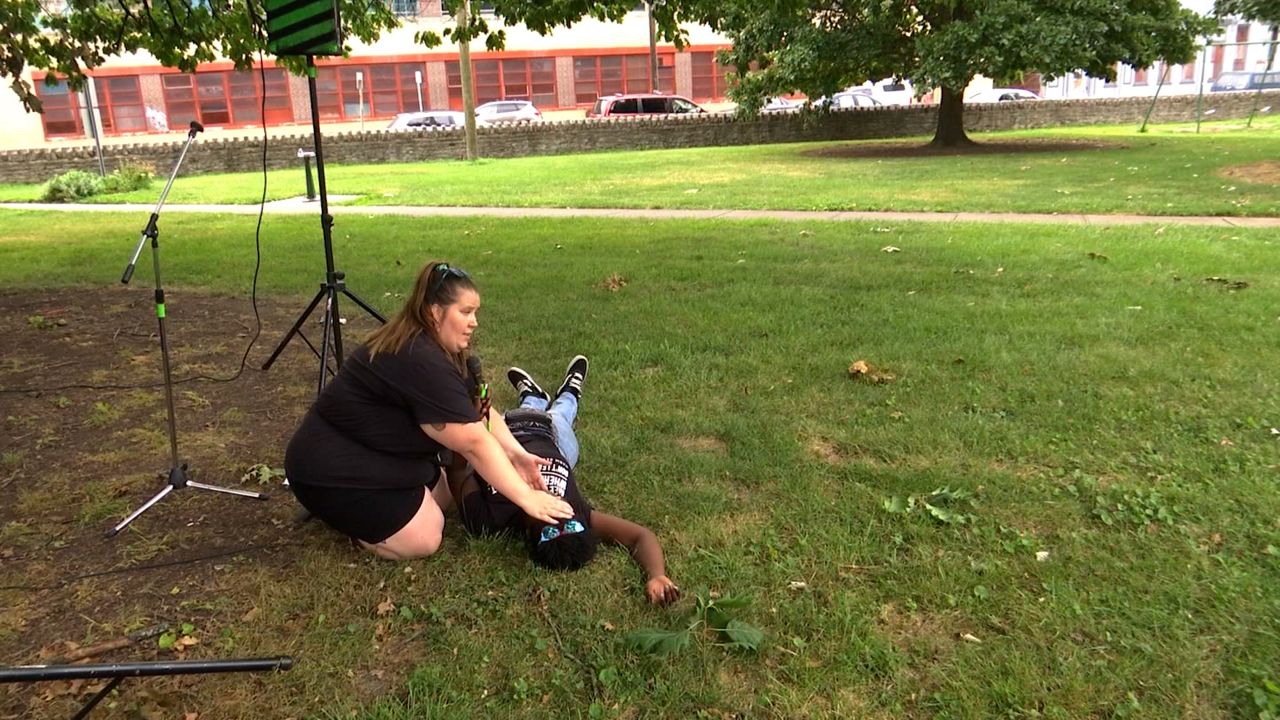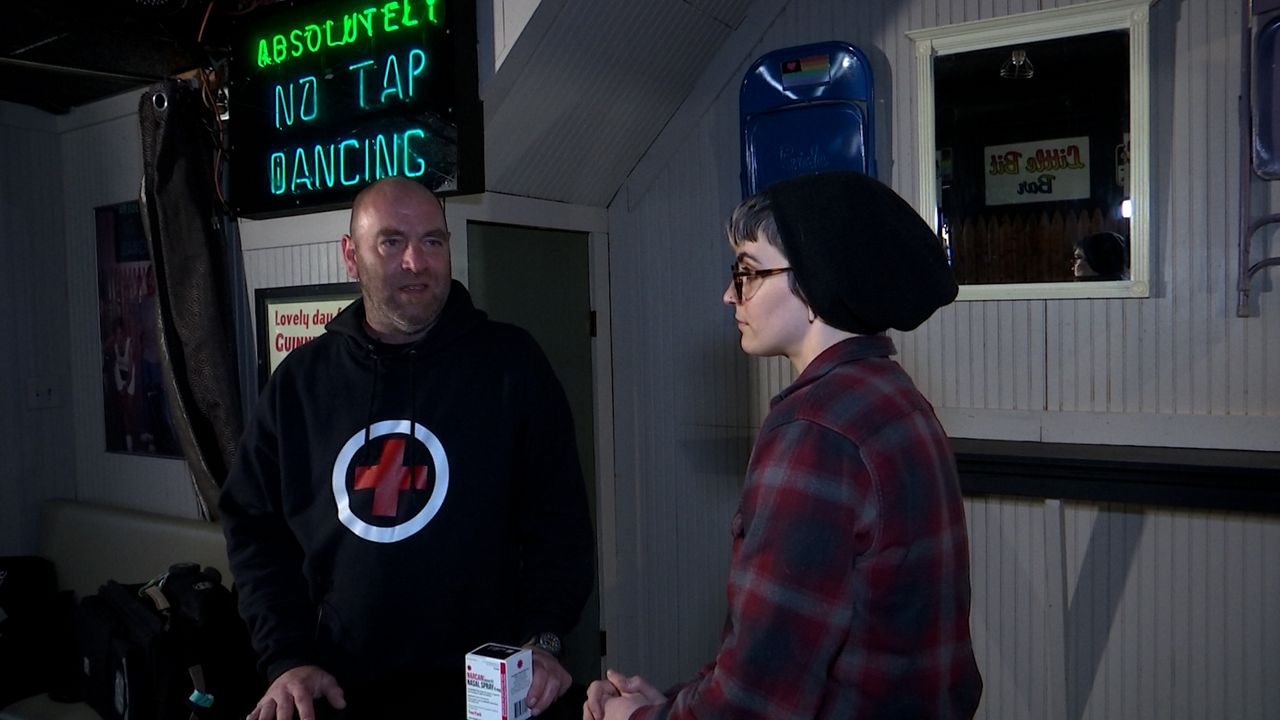CINCINNATI — In 2020, overdose deaths spiked across Ohio, and in the months since, the Ohio Department of Health reports they’ve remained above pre-pandemic levels. More than 80% of those deaths were due to fentanyl.
Groups like Harm Reduction Ohio point to these statistics as a call to action. To save lives, they want more Narcan and more fentanyl testing strips in the hands of those who need it, and they’re looking to those who work and participate in nightlife to take the lead.
In partnership with Cincinnati’s Coalition for Community Safety, Harm Reduction Ohio has helped lead a series of workshops and trainings to help people recognize the signs of an opioid overdose and know how to intervene.
At a recent session in Cincinnati, AmandaLynn Reese explained their mission to a small group gathered for the free lesson.

“The more we talk about these things, the more they’re normalized, the more the people who use drugs look like people and not like criminals or outliers of the community,” she said.
Harm Reduction Ohio delivers and distributes Narcan for free across the state, and has been lobbying to fully legalize fentanyl testing strips, currently considered drug paraphernalia under Ohio law. Some counties opt not to prosecute anyone for possession of testing strips, but it is up to the discretion of local law enforcement.
Reese acknowledges nothing they offer is a replacement for full emergency services, but she believes no one can take care of a community better than the community itself, especially if they’re on the scene first.
“Fast intervention saves lives," she said, before later acknowledging another potential concern. “I understand the hesitation of certain communities to not want to engage law enforcement.”
One of the more controversial stances of the group, Reese believes those who might be on probation might be using illegal drugs themselves or might otherwise fear law enforcement could be reluctant to call 911, even as a Good Samaritan and without the right tools and knowledge, that delay could be deadly.
“I’m going to try and give you the tools to not need their support,” she told her workshop group.
While anyone is welcome to come to any of Harm Reduction Ohio’s training workshops, Noam Barnard, the founder of CCS, said he’s particularly working to get members of Cincinnati’s nightlife scene involved.

“It’s a really big problem out there with street drugs and party drugs,” he said. “We all know that people aren’t supposed to take drugs in bars, but it happens or people take them before they go out.”
Barnard said that trend puts bar and club employees in a unique position to recognize an overdose and intervene it can prevent a bad situation from growing worse.
“There might be 15 minutes where you have to wait for an ambulance to show up, and in this case, you can have a first aid kit available and you can have some Narcan available and that might make a difference in saving somebody’s life,” he said.
Alexis Perrman, a longtime bartender, took one of Barnard’s earlier sessions and said she now feels better knowing she’s equipped to step in if she’s ever faced with this kind of emergency.
“As a bartender, you’re already kind of paying attention to see if somebody is OK to continue to be served anyways, so it’s not so much adding a whole other thing as making sure to take note of one extra detail in a thing you’re already doing,” she said.
Though she considers the Narcan training and fentanyl testing strips invaluable, Reese believes the most important part of her workshops, is the education it can provide on stigma.
“No matter what their back story is they’re people first,” she said. “And they deserve another chance to get clean if they want, or to keep using safely.”



